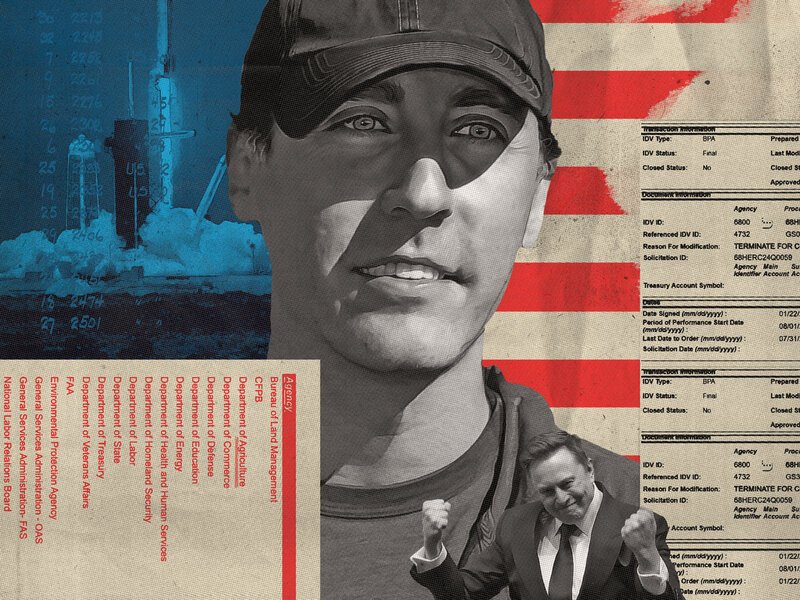Steve Davis, a longtime collaborator of Elon Musk, has emerged as a central figure in the Department of Government Efficiency (DOGE), an initiative aimed at streamlining U.S. government operations. Known for his unwavering loyalty and exceptional cost-cutting skills, Davis’s journey from a SpaceX engineer to a key player in governmental reform is a testament to his dedication and expertise.
Early Collaboration with Elon Musk
Davis’s association with Musk began in 2003 when he joined SpaceX as an engineer. His innovative approach to problem-solving quickly set him apart. One notable achievement was his development of a part that reduced costs from $120,000 to just $3,900. This accomplishment showcased his ability to balance technical excellence with financial prudence, earning him Musk’s trust and respect.
Leadership Roles in Musk’s Ventures
Beyond SpaceX, Davis played a pivotal role in Musk’s other enterprises. As the president of The Boring Company, he led efforts to revolutionize urban transportation through underground tunneling projects. His leadership was characterized by meticulous attention to detail and a relentless pursuit of efficiency. Davis’s frugality became legendary; he was known to scrutinize expenses meticulously, approving costs as low as a few hundred dollars despite the company’s substantial capital. His tough negotiation tactics with suppliers further underscored his commitment to cost control.
Instrumental Role in Twitter’s Transformation
Davis’s cost-cutting expertise was further demonstrated during Musk’s acquisition of Twitter in 2022. Tasked with scrutinizing expenditures and streamlining operations, Davis implemented significant reductions in costs and staff. His commitment was so profound that he, along with his family, temporarily resided at Twitter’s headquarters to oversee the transition. This hands-on approach exemplified his dedication to achieving operational efficiency.

The Genesis of the Department of Government Efficiency (DOGE)
The concept of DOGE emerged from discussions between Musk and then-presidential candidate Donald Trump in the summer of 2024. Musk proposed the idea of a “government efficiency commission” aimed at reducing wasteful spending and improving operational effectiveness within federal agencies. Embracing this vision, President Trump established DOGE shortly after his inauguration, appointing Musk to lead the initiative. Davis was a natural choice to spearhead the department’s ambitious objectives.
Leadership at DOGE
As a key figure in DOGE, Davis is responsible for identifying and eliminating inefficiencies across various federal agencies. His strategies include accessing governmental payment systems to uncover wasteful expenditures and implementing stringent cost-control measures. These actions have led to significant changes within the government, aligning with the initiative’s goal of reducing federal spending by $2 trillion.
Recruitment and Team Building
Davis has been instrumental in assembling a team of like-minded individuals to support DOGE’s mission. Leveraging networks from tech companies like Palantir and SpaceX, the recruitment effort targeted young, tech-savvy professionals passionate about governmental reform. This approach infused the department with fresh perspectives and innovative ideas, though it also raised concerns about the team’s relative inexperience in public administration.
Controversies and Challenges
Despite its ambitious goals, DOGE’s operations have not been without controversy. A federal judge recently ruled that some of the department’s actions, such as dismantling certain federal agencies, likely violated constitutional provisions. Additionally, DOGE’s aggressive cost-cutting measures have led to significant anxiety and pushback within various federal agencies. Critics argue that the department’s approach lacks transparency and undermines essential governmental functions.
Public and Political Response
The establishment and actions of DOGE have elicited mixed reactions from the public and political spheres. Supporters praise the initiative’s focus on reducing waste and improving efficiency, viewing it as a necessary step toward a leaner government. Detractors, however, express concern over the potential erosion of critical public services and the concentration of power within a small, unelected team. The debate continues as DOGE’s impact unfolds.
Conclusion
Steve Davis’s journey from an engineer at SpaceX to a central figure in governmental reform exemplifies his unwavering commitment to efficiency and fiscal responsibility. His leadership at the Department of Government Efficiency reflects a bold attempt to apply private-sector principles to public administration. While his methods may invite scrutiny and debate, there is no denying the significant impact of his efforts to redefine the landscape of governmental operations.
Bryan Johnson’s Use of Confidentiality Agreements Sparks Controversy






